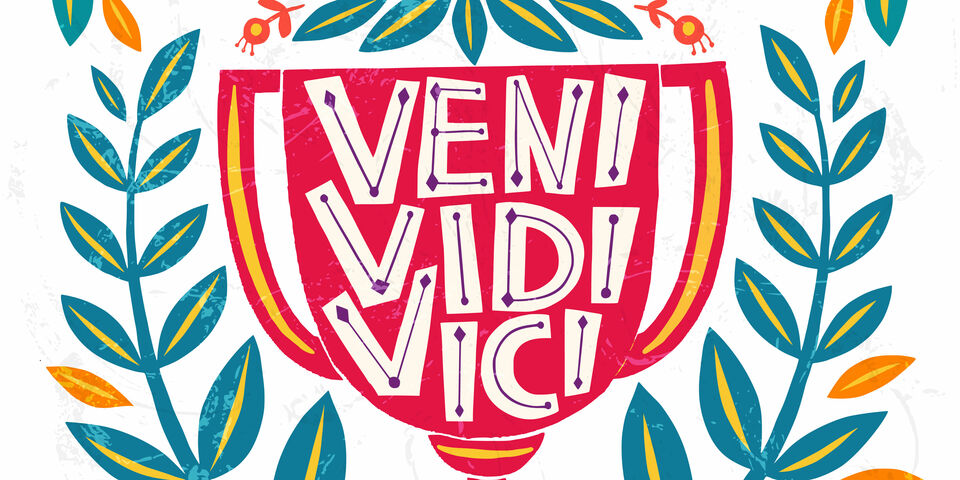Four Vidi grants for researchers TU/e
Four TU/e researchers have been awarded a Vidi grant from the Dutch Research Council to further develop their innovative research. Andreas Hülsing, Liesbeth Janssen, Adrie Mackus and Laura Sanità receive the grant for their research into future-proof cryptography, understanding the enigmatic phenomenon of glass formation, building nanoelectronics from the bottom-up and quickly solving optimization problems in, for example, data tranfers. The Vidi grant is worth 800,000 euros.
Andreas Hülsing focuses on making cryptography future-proof. It is known that quantum computers will break all cryptography used on the Internet today. However, quantum computers also require us to change the way we determine if a cryptographic scheme is secure.
Hülsing and his team will develop new ways to select secure cryptographic schemes for a world with quantum computers. One of the cryptographic schemes he developed was recently selected as a new standard for cryptographic protection by US National Institute of Standards and Technology (NIST). Two further schemes have been selected as candidate standards.
Andreas Hülsing is assistant professor in the Coding Theory and Cryptology group at the department of Mathematics and Computer Science.
Unravelling glass formation
Using advanced machine-learning methods, Liesbeth Janssen and her team will develop a new theory of glass formation. Glass has been used for centuries and continues to find many new industrial applications, but remains poorly understood. Glass is deemed to be a special form of a solid. While the material feels hard, it lacks a regular crystalline structure. Physicists still cannot explain the transition from a liquid to this special solid form.
If Janssen succeeds in solving this mystery, numerous applications come within reach. Fast-working computer chips, for example, or recyclable plastic. The glass phase can even help us better understand asthma and cancer metastasis. Janssen is associate professor in the Theory of Polymers and Soft matter group at the department of Applied Physics. More information about her research can be found in this longread.
Nano against material waste
The research of Adrie Mackus focuses on nanotechnology. The ultimate ambition in nanoscience is to synthesize materials from the bottom-up with atomic-level accuracy. However, so far the fabrication of nanoelectronics still relies completely on top-down processing by removing excessive material. Mackus and his team will develop new nanomanufacturing methods for bottom-up processing relying on a method known as Atomic Layer Deposition (ALD).
ALD builds up layers of atoms through alternating chemical reactions at a surface. By blocking those chemical reactions in specific areas, deposition of material only occurs where it is needed. As a result, there is no need for performing etching afterwards to remove unwanted material. This allows for the downscaling of electronics to the atomic level and a reduction of material waste.
Mackus conducts his research in the Plasma and Materials Processing group within the department of Applied Physics. He recently was awarded a large research grant from the European Union.
Fast methods for solving optimization
The research of Laura Sanità is focused on optimization problems. Think of fast data transfers on computer networks, time-effective scheduling for public transport, or efficient resource allocation.
Many of these problems have an optimal solution that has to be found out of a finite number of possible solutions. A well-known example is the travelling salesman problem, where the shortest route has to be found between a number of cities without visiting any city more than once. Sanità and her colleagues use models from discrete mathematics to find solutions for such problems in a fast and reliable way.
Sanità works as associate professor in the Combinatorial Optimization group at the department of Mathematics and Computer Science.
Veni, Vidi, Vici
Vidi fellowships are aimed at experienced researchers who have carried out succesful research for a number of years after their PhDs. Together with the Veni and Vici scholarships, Vidi is part of the NWO Talent Programme. With this program the Dutch Research Council wants to stimulate curiosity-driven and innovative research.
A total of 503 researchers submitted an application for a Vidi grant this year, of which 81 have now been honoured. That amounts to an award rate of 16%.
University | Number of awarded Vidi grants |
UvA Amsterdam | 8 |
Radboud Nijmegen | 7 |
Wageningen | 7 |
Leiden | 7 |
Utrecht | 6 |
Erasmus Rotterdam | 5 |
Groningen | 4 |
TU/e | 4 |
Erasmus MC | 4 |
TU Delft | 4 |
UMC Utrecht | 4 |
VUMC | 3 |
VU Amsterdam | 3 |
AMC | 3 |
Twente | 2 |
Maastricht | 2 |
LUMC | 2 |
Radboud UMC | 2 |
CWI | 1 |
SRON | 1 |
MUMC+ | 1 |
NSCR | 1 |






Discussion